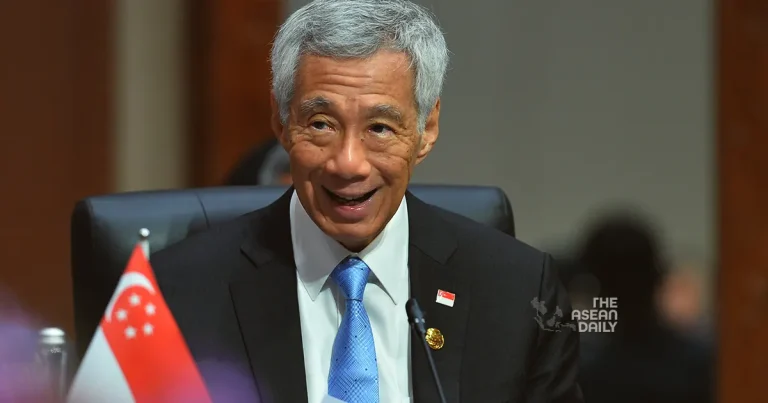7-9-2023 (SINGAPORE) Singapore’s economy is expected to avoid a recession this year despite its sluggish performance, according to Prime Minister Lee Hsien Loong. However, uncertainties loom over the economic outlook for 2024. Speaking to Singapore media at the conclusion of the 2023 ASEAN Summit in Jakarta, PM Lee described the ASEAN economy as a “bright spot” in the midst of a gloomy global backdrop. He expressed confidence that the region’s abundant resources, including natural gas, oil, and minerals, would support its economies in the long term.
While Singapore forecasts a 1% growth rate this year, slightly slower than the anticipated 4% growth rate for ASEAN, PM Lee attributed the disparity to Singapore’s status as a developed economy. He noted that a growth rate of 2.5% would be considered a “good year” for the city-state, with 3% growth being a “very, very good year.” PM Lee emphasized that Singapore’s post-COVID economic rebound, which saw a 7.6% increase in gross domestic product (GDP) in 2021, was transitory and not sustainable.
PM Lee acknowledged the sluggishness in the economy but stated that a recession is unlikely for this year. However, he expressed uncertainty about the economic landscape in Europe, America, and China, and cautioned that the outlook for 2024 remains unclear. He addressed the nation’s economic outlook in his National Day Rally speech in August, expressing optimism for positive economic growth and a potential avoidance of a recession.
Private sector economists recently revised Singapore’s economic growth forecast for this year down to 1%, compared to the previous projection of 1.4% in June. The main downside risks cited by economists include a slowdown in external growth, inflationary pressures, and decelerating growth in China. Despite these challenges, economists project a more positive outlook for 2024, with a GDP expansion of 2.5% anticipated.
Singapore had previously adjusted its economic outlook for 2023, narrowing the growth range to 0.5% to 1.5% from the earlier projection of 0.5% to 2.5%. The city-state narrowly avoided a recession in the second quarter, as weak global demand impacted its trade-reliant economy. Singapore experienced a seasonally-adjusted 0.1% quarter-on-quarter GDP expansion from April to June, following a contraction of 0.4% in the first quarter. A technical recession is defined as two consecutive quarters of negative growth.
PM Lee praised the ASEAN economy as a bright spot amidst global challenges. He highlighted the region’s abundant resources and emphasized the importance of enhancing capabilities, competitiveness, and cooperation within ASEAN to ensure better outcomes for its member states. Airlangga Hartarto, Indonesia’s Coordinating Minister for Economic Affairs, commended the region’s positive performance over the past decade, with an average growth rate of 4% to 5%.
As the ASEAN Summit concluded, PM Lee emphasized the need for enhanced cooperation within the regional bloc. He stressed the importance of taking proactive and assertive positions on issues, citing the Ukraine war, the Myanmar crisis, and tensions between the United States and China as developments impacting ASEAN. PM Lee called for substantive agreements and cooperation in areas such as the digital economy and green economy to address regional concerns and maintain ASEAN’s relevance in the face of geopolitical tensions.




